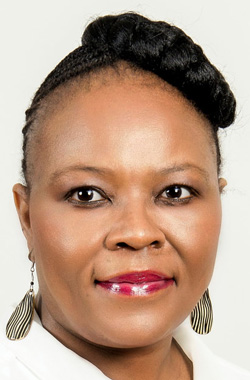
When does a professional accountant become a great business advisor?

“As automation and AI invade and occupy business services once exclusive to Professional Accountants, practitioners must reassess their value proposition,” said Faith Ngwenya, Technical and Standards Executive at the South African Institute of Professional Accountants (SAIPA).
Accountants are being advised by their professional accounting bodies (PAOs) to focus more on business advisory engagements. But what makes a good business advisor? To grasp that concept, said Ngwenya, one must first understand the four types of accountants.
The bean counter
Offering only the standard accounting services, the bean counter knows where the beans are and how to count them. In other words, they are intimately familiar with their enterprise’s ledger and can perform the required financial reporting. However, they neither understand the operations behind the figures nor can their outputs provide analytical or predictive insights to help the business grow. The bean counter can be replaced with AI and automation.
The bean mathematician
The bean mathematician also knows the enterprise’s accounts very well. Additionally, they possess advanced reporting and analytics capabilities when it comes to counting the beans. As such, they are able to offer predictive insights and unpack financial dynamics. But because they still can’t see how their figures relate back to business operations, they can’t prescribe transformational changes. They are more concerned about compliance with standards and regulations such as tax authorities. The mathematician can be replaced with the analytical power of AI.
The bean physicist
The bean physicist knows where the beans come from, this is, they have an impressive grasp of how business operations affect their accounts. Unfortunately, they have only basic reporting skills and can’t project the future effects of those operations or suggest strategic optimisations. The physicist is not easily replaced with technology but is also not effective in enabling business growth or transformation. They are mainly problem solvers.
The business enabler
The business enabler has both a strong grasp of the business operations that produce the financials and advanced analytical and predictive capabilities. They provide data-driven insights into business growth and transformation opportunities, plus they can suggest practical operational improvements to achieve business development initiatives. They also know how to leverage technologies, like AI, predictive analytics, Cloud and more, to derive maximum value from financial and management data, creating a true competitive advantage.
In addition, they know their employer’s or client’s organisation inside out. So they understand the constraints it faces and can expose opportunities it may be missing both internally and in its market. Most importantly, they have evolved soft skills like rapport building, communication, collaboration and emotional intelligence, empowering them to create better, inclusive solutions that have total buy-in from stakeholders.
“The business enabler is involved in more than just financial management,” says Ngwenya “They’re invited to consult on risk management, business rescue, business development, IT and management information systems, and much more.”
The future of accounting
Professional Accountants who nurture the business enabler mindset while striving to develop the competencies of a business advisor will be in greater demand, even as technology absorbs their traditional services. Artificial intelligence can replace a lot of things but professional judgement is one skill that will hardly be replaced. Professional accountants of the future will remain relevant if they continually develop themselves, not only on routine compliance areas but sharpening their cognitive skills and business advisory skills.
Caption: To find out more about the coming changes and how to address them, join SAIPA for its Accounting iNdaba 2019, to be held from 13 to 15 August at the Cape Town International Convention Centre. You can register now at www.saipa.co.za/accounting-indaba-2019.












































